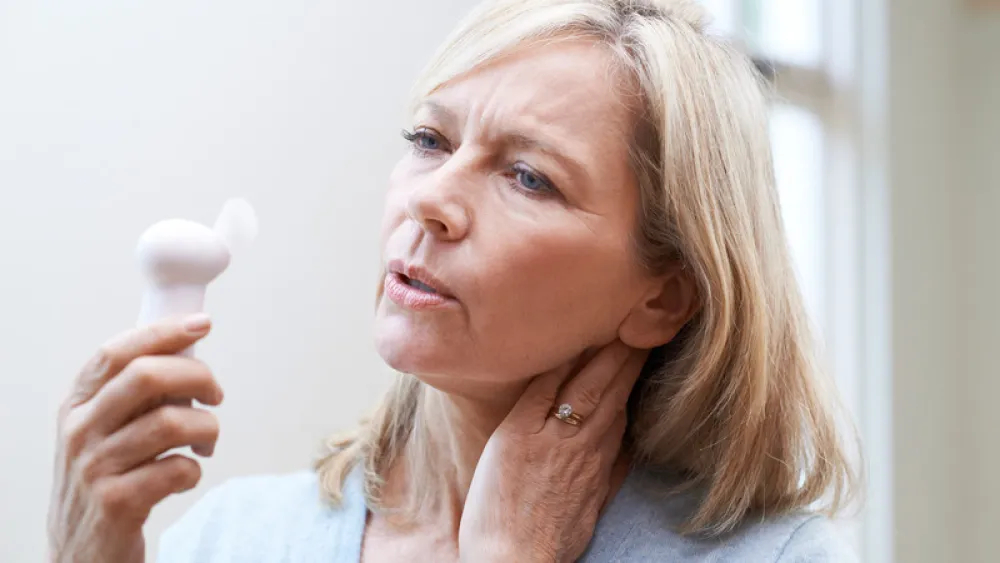Women's Health
Beat the Menopause Heat


You might want to take your clothes off and run naked through a winter storm. When the temperatures are rising and it has nothing to do with the thermometer outside, you might be having what some call “your own personal summer.”
Defining menopause
Hot flashes can be subtle or just downright uncomfortable. Unfortunately, they are just one of many symptoms associated with menopause, defined as a time when a woman has not had a menstrual period for one year. Symptoms can also be triggered during perimenopause, the transition time before menopause. During this time, ovulation becomes irregular and the production of estrogen and progesterone decreases. This drop in hormone levels causes most of the symptoms associated with menopause.
It’s a unique time in a woman’s life to go through the menopausal process and sometimes it’s very confusing. Your body is changing, your hormones are changing, and it’s also a stage of life changing.
Menopause transitional symptoms
While the actual definition of menopause is not having a period for a year, we really feel like it’s a transition, it’s not just a point in time. It’s during this transition where women start to experience these symptoms and not feel well in general.
Hot flashes are just one of the many symptoms a woman may experience during this life transition time. Symptoms can also include:
- Fatigue
- Night sweats, or excessive sweating
- Osteoporosis
- Insomnia or early awakening
- Hair dryness or hair loss
- Dry skin
- Irritability
- Moodiness
- Reduced sex drive
- Vaginal dryness
- Pain during sexual intercourse
A focus on healthy lifestyle
And while hormones may be to blame for all this nonsense, replacing them isn’t the first step to feeling better. Menopause health care specialists say finding relief starts with a focus on healthy living. That healthy life balance can make a huge difference.
When your body is changing through menopause, you might not have changed a thing when it comes to lifestyle, but you might need to. I like to sit down and go through some lifestyle factors first and say, ‘Ok, what can we change? What might make it better?’ Start by cutting out the caffeine, the pop, the late nights, the multitasking, and really simplify one’s life and just concentrate on, ‘What can I do for me?’
Embracing life – living with gusto
That also means setting some realistic expectations when it comes to defining what life looks like after the age of 50. I see a lot of women who gain weight during menopause and are frustrated by it, but it’s really a natural part of aging. You may want to be 30 again, but you have to be reasonable. Find an exercise program that fits your style and age. What’s going to give you the most satisfaction is if you can stay fit from the standpoint of just feeling better.
Focusing on healthy living can help restore life balance and perhaps provide some relief from the negative symptoms of menopause. When they don’t, that’s when it is time to have a conversation with your menopause health care provider.
Women will spend a third of their life in menopause. It can be a very rewarding part of life if women do what they can to stay healthy. It’s important for women to know that they don’t have to tough it out. There are solutions.
The Methodist Physicians Clinic Menopause Clinic is located at the Methodist Women’s Center at 192nd and Dodge. If you have questions about menopause, make an appointment today with one of our North American Menopause Society (NAMS)-certified menopause practitioners.

